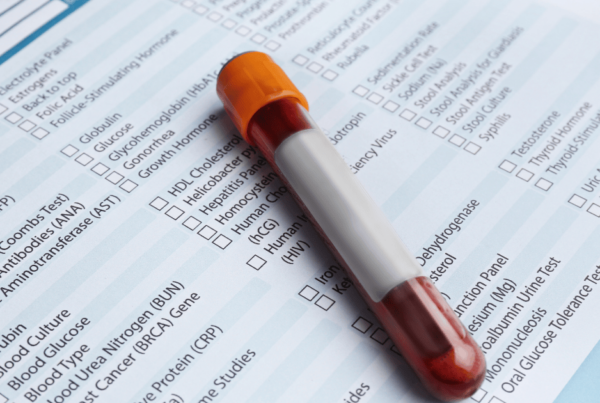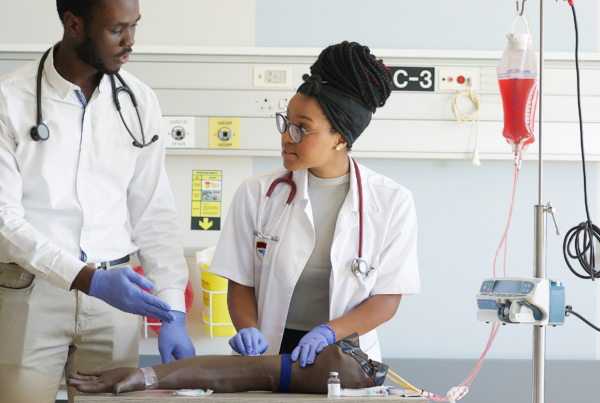In today’s fast-paced world, individuals seeking to jumpstart or advance their healthcare careers often prefer efficient training options. The Quickest Medical Certifications provide a fast track into the field, offering short training periods and excellent career prospects. These certifications enable professionals to gain specialized skills and practical experience in just weeks or months, making a significant impact on their career trajectories.
This guide explores the quickest medical certifications, detailing their duration, content, and career benefits. If you’re ready for a rewarding healthcare career with minimal delay, keep reading to discover the best certification options for your goals.
| Key Takeaways: Quickest Medical Certifications |
| Fast-Track Career Entry: Quick medical certifications provide a fast way to enter the healthcare field, allowing individuals to start earning and gaining experience in months, not years. |
| Diverse Roles Available: From patient care to administrative tasks, there are a variety of certification paths to suit different interests and skills in the healthcare field. |
| High Demand for Certified Professionals: Many of these certifications prepare individuals for in-demand roles in hospitals, clinics, and other healthcare settings, offering excellent job stability. |
| Accessible Training Options: Most certifications have flexible training options, with in-person and online programs available through accredited schools and healthcare organizations. |
| Opportunities for Advancement: Certifications provide foundational skills that can be built upon, offering a clear path for career growth in specialized areas. |
Why Pursue a Quick Healthcare Certification?
Healthcare certifications are ideal for those looking to enhance their skills, make a career shift, or gain specialized training that is directly applicable in the field. Many of these quick medical certifications are designed to meet urgent demands in the healthcare sector, allowing you to qualify for roles in clinics, hospitals, and home care settings.
A fast-track certification can:
- Boost your job prospects in a competitive market.
- Prepare you for in-demand healthcare roles quickly.
- Enable you to start earning while gaining practical experience.
Let’s take a closer look at some of the quickest healthcare certifications you can complete to start or enhance your career in healthcare.
1. Home Health Aide Certification
Duration: 4–6 weeks
Overview: A home health aide (HHA) supports patients with daily living activities, such as bathing, dressing, and eating, often working directly in patients’ homes or long-term care facilities. The training includes essential caregiving skills, communication techniques, and basic health monitoring.
Certification Path: Many states offer training through local agencies or certification boards, while some states require a national certification from organizations like the National Association for Home Care and Hospice (NAHC).
2. Phlebotomy Technician Certification
Duration: 1–3 months
Overview: Phlebotomy technicians are skilled professionals trained to draw blood and prepare it for lab analysis. Phlebotomy certifications, such as those offered by Phlebotomy Now School, focus on hands-on practice, ensuring you’re fully prepared for patient interactions.
Certification Path: After completing a brief training program, students can take the Registered Phlebotomy Technician (RPT) exam through organizations like American Medical Technologists (AMT).
3. Emergency Medical Technician (EMT) Certification
Duration: 1–3 months
Overview: EMTs are first responders trained to provide emergency care at accident scenes, homes, and community settings. An EMT certification covers essential medical skills like CPR, patient assessment, and trauma response.
Certification Path: Most EMT programs require a few months of training. Upon completion, you can earn certification through the National Registry of Emergency Medical Technicians (NREMT).
4. Medical Billing and Coding Certification
Duration: 3–6 months
Overview: Medical billing and coding specialists manage healthcare billing systems, coding patient diagnoses, and submitting claims to insurance companies. Training focuses on learning medical terminology, coding systems (ICD, CPT), and healthcare reimbursement processes.
Certification Path: The Certified Billing and Coding Specialist (CBCS) certification through the National Healthcareer Association (NHA) is a common path, opening doors in hospitals, clinics, and insurance companies.
5. Certified Nursing Assistant (CNA)
Duration: 4–12 weeks
Overview: Certified Nursing Assistants assist nurses by providing hands-on care to patients, including hygiene assistance, vital sign monitoring, and mobility support. CNA certification is relatively fast and widely recognized across healthcare facilities.
Certification Path: CNA training is state-regulated, typically requiring a state exam upon course completion. Programs are often offered through community colleges and can be completed in a matter of weeks.
6. Pharmacy Technician Certification
Duration: 3–6 months
Overview: Pharmacy technicians work in retail and hospital pharmacies, assisting pharmacists with medication preparation, inventory, and customer service. Training programs cover basic pharmacology, dosage calculations, and regulations.
Certification Path: The Pharmacy Technician Certification Board (PTCB) offers the Certified Pharmacy Technician (CPhT) credential, which requires the successful completion of a certification exam.
7. EKG Technician Certification
Duration: 3–6 months
Overview: EKG (Electrocardiogram) Technicians specialize in performing heart monitoring tests, like stress tests and EKGs. Training focuses on how to operate EKG equipment and interpret results, making this a valuable certification for those interested in cardiology.
Certification Path: The National Healthcareer Association (NHA) offers the Certified EKG Technician (CET) credential. This certification is ideal for individuals seeking entry-level roles in cardiac care units.
8. Patient Care Technician (PCT) Certification
Duration: 4–6 months
Overview: Patient care technicians support nurses and physicians by performing a variety of essential patient care tasks, from monitoring vital signs to assisting with basic hygiene needs. The PCT role is similar to a CNA but involves additional training.
Certification Path: The Certified Patient Care Technician/Assistant (CPCT/A) certification through the National Healthcareer Association (NHA) is a popular option for aspiring PCTs.
9. Medical Front Office Administration Specialist Certification
Duration: 8–12 weeks
Overview: These professionals manage the administrative tasks in healthcare facilities, handling patient records, scheduling, and reception duties. Training includes medical terminology, record-keeping, and customer service.
Certification Path: The Certified Medical Administrative Assistant (CMAA) offered by the National Healthcareer Association (NHA) is a recognized certification in this field.
10. Behavioral Health Technician Certification
Duration: 10–11 weeks
Overview: Behavioral Health Technicians work with patients facing behavioral and mental health challenges, assisting with treatment plans and patient care in mental health facilities.
Certification Path: The Registered Behavior Technician (RBT) certification, offered by the Behavior Analyst Certification Board (BACB), is highly regarded for this role.
11. Sterile Processing Technician Certification
Duration: 9–11 months
Overview: Sterile processing technicians are responsible for ensuring that medical equipment is properly sterilized and prepared for use. Training includes infection control practices and sterilization methods.
Certification Path: The Certified Registered Central Service Technician (CRCST) credential from the Healthcare Sterile Processing Association is commonly pursued.
12. Cardiac Monitor Technician Certification
Duration: 3–6 months
Overview: Cardiac Monitor Technicians are trained to observe and record patients’ heart activity, identifying abnormalities that require medical attention.
Certification Path: The Certified Cardiographic Technician (CCT) certification from Cardiovascular Credentialing International is a suitable choice for those entering this field.
13. Medical Lab Technician Certification
Duration: 1 year
Overview: Medical lab technicians analyze patient samples, helping physicians diagnose health conditions. Training programs cover lab safety, equipment handling, and sample analysis.
Certification Path: After completing a one-year program, you can sit for the Medical Laboratory Technician (MLT) exam through American Medical Technologists (AMT).
14. Dental Assistant Certification
Duration: 9–12 months
Overview: Dental Assistants perform a variety of clinical and administrative tasks, including patient preparation, x-rays, and chairside assistance during procedures.
Certification Path: The Dental Assisting National Board (DANB) offers the Certified Dental Assistant (CDA) credential, a valuable certification for aspiring dental assistants.
15. Medical Assistant Certification
Duration: 6–12 months
Overview: Medical Assistants support healthcare teams by performing both clinical and administrative tasks, such as drawing blood, managing patient files, and handling basic lab tests.
Certification Path: The Certified Medical Assistant (CMA) credential from the American Association of Medical Assistants (AAMA) is well-recognized and provides excellent employment prospects.
Choosing the Right Certification for You
When selecting from the quickest medical certifications, consider your career goals, interests, and the type of patient care you’d like to provide. Certifications in healthcare administration, patient care, or technical areas like phlebotomy and EKG are all great entry points with promising growth.
FAQs
What are the quickest medical certifications to earn?
The fastest certifications include Phlebotomy Technician, Home Health Aide, and EKG Technician, which can be completed in 1 to 3 months. These programs focus on specific skill sets, allowing students to quickly enter the workforce.
How much do these quick certifications cost?
Costs vary by program and location, but typically range from $500 to $3,000. Some schools offer payment plans, scholarships, or financial aid to help students with costs.
Do I need a college degree to pursue these certifications?
No, most of these certifications don’t require a college degree, though a high school diploma or GED is often required. These programs are designed to be accessible and practical for students from various educational backgrounds.
Are online programs available for quick healthcare certifications?
Yes, many programs, especially for medical billing and coding, offer online or hybrid learning options, combining online coursework with hands-on training. Phlebotomy, EMT, and CNA programs typically require some in-person training.
How much can I earn with a quick healthcare certification?
Entry-level salaries vary depending on location and certification type. For example, Phlebotomy Technicians typically earn around $30,000 to $40,000 per year, while Medical Billing Specialists can earn $35,000 to $45,000. Specialized roles, like EKG Technicians, may offer even higher pay.
Can these certifications lead to career advancement?
Absolutely! Quick certifications can serve as a stepping stone to further training and certifications, enabling advancement to higher-paying or more specialized roles in healthcare.
What’s the demand for professionals with these certifications?
Healthcare certifications for roles like Home Health Aide, Phlebotomy Technician, and CNA are in high demand, especially in settings like hospitals, clinics, and home health care agencies. Demand is expected to continue growing as healthcare needs rise.
Conclusion: Start Your Healthcare Career Quickly with a Certification
Healthcare offers many rewarding roles with quick certification paths, enabling you to enter the workforce and make a difference in patients’ lives. Whether you’re aiming to provide hands-on care as a phlebotomist or support behind the scenes as a medical biller, the quickest medical certifications can give you the skills and confidence to succeed.
Ready to begin? Consider a program like Phlebotomy Now School’s certified courses to fast-track your way into healthcare.
Start Your Healthcare Career with Phlebotomy Now School!
Ready to fast-track your career? Our 1-Day Phlebotomy Hybrid Program provides hands-on training, expert-led instruction, and immediate certification—all in just one day! Join us to gain the skills you need for a rewarding future in healthcare.
Contact us to secure your spot today. Get certified and start making a difference!


